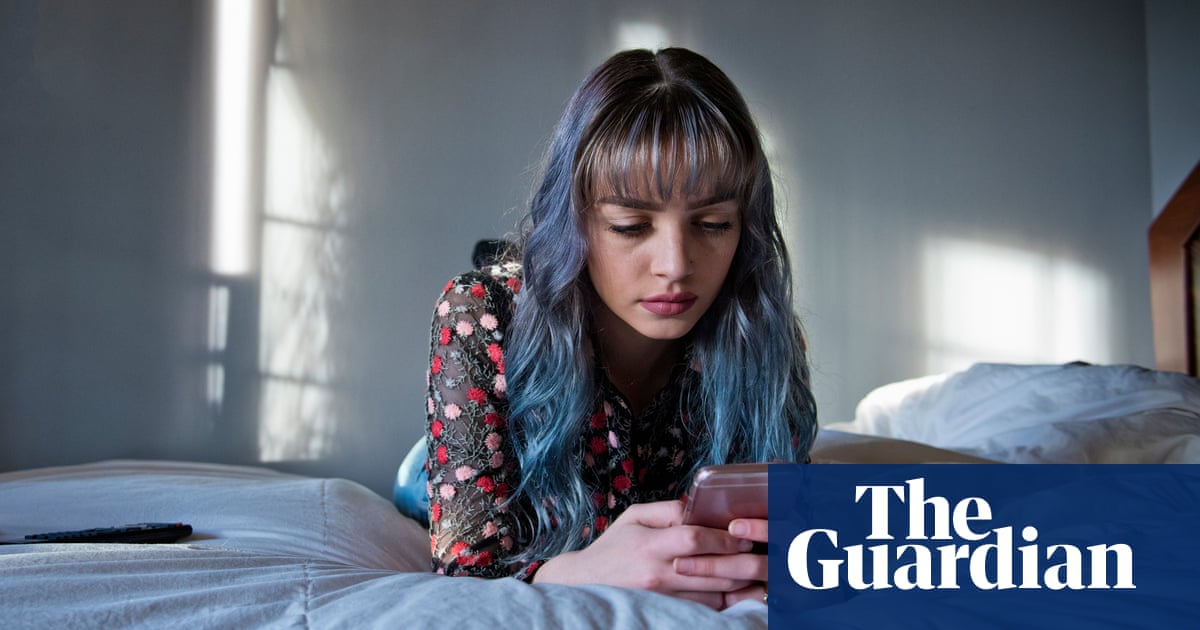Australian teenagers who spend between one and three hours on social media a day report similar or better mental health outcomes compared with teenagers using social media less, suggesting moderation may be key, according to a major new survey.
The Mission Australia survey canvassed the views of 17,480 young people across Australia aged between 15 and 19, which comes amid the public debate over restricting access to social media for people aged under 16.
A ban on under-16s from social media – including TikTok, Snapchat and Instagram – is due to come into effect in December in Australia.
The survey found 97% of young people reported using social media every day, with 38% spending three or more hours per day, and 53% spending one to three hours per day.
The report found 48% of gender diverse people reported high social media use, compared with 42% of female respondents and 35% of male respondents.
Teenagers who used social media between one and three hours per day reported feeling more in control of their lives (61%) compared with low users (59%) and high users (51%). Moderate users were also just as likely to seek help from parents as low users (63%) compared with high users (52%), and reported less difficulty in socialising (26%) than low users (28%).
Sign up for Guardian Australia’s breaking news email
Those who reported higher social media use also reported worse mental health and wellbeing, such as feeling negative about the future, no control over their lives and feeling lonely, the report found.
This was higher among gender diverse participants who reported high psychological distress (64%) at a higher rate compared with females (35%) and males (20%).
Youth mental health body Orygen said the report suggested moderation was key when it came to social media use, arguing moderate users of social media tend to fare better or very similarly to low users, “indicating that social media is not, in itself, a problem for all young people”.
“There obviously been a dominant narrative that all social media use is bad for young people but actually what we found is that moderate users were faring better or the same as low users,” lead survey author and Orygen research fellow Dr Louise La Sala said.
“We saw that in terms of their sense of control over their lives, the hope they had for their futures, the way they were more likely to reach out to family or friends or take part in exercise in sports.
“It challenges the assumption that many of us hold that social media is inherently bad.”
La Sala said gender diverse people often sought community, support and connection in online spaces, and the study could not state whether people experiencing more distress were spending more time online to seek help, or whether more time online was affecting that distress.
When instituting the social media ban, the prime minister, Anthony Albanese, talked up the benefits of children being off social media in order to spend more time on the football field or netball court.
But the survey reveals more than half (55%) of the cohort who say they spend more than three hours per day on social media take part in sports.
That rises to 67% for both moderate and low use of social media.
La Sala said there was not a lot of evidence for the claim that social media use was displacing other activities.
“There are many other platforms or many other parts of the internet that will be available to young people.”
Those surveyed will not be affected by the incoming ban on under-16s – with the majority aged 16 or over already. The report recommends increasing digital literacy to ensure when the ban comes into effect that teenagers aged 14 and 15 can be equipped to navigate social media when joining.
La Sala said the ban should not be the end point of making social media safer for all users.
“It doesn’t really matter if you’re 16 or 26, you shouldn’t be exposed to harmful content. The ban is one attempt at trying to mitigate some of these harms for young people but there is so much more we need to be doing, and the conversation doesn’t stop there.”
The federal government is due to receive a long-awaited report on technology to check ages of all users of social media and adult websites by the end of July. The communications minister, Anika Wells, will then need to decide which platforms it will apply to, and which technology should be used before the ban comes into effect in December.
The eSafety commissioner, Julie Inman Grant, said on Tuesday that she has recommended to Wells that the expected carve out of YouTube from the regulations should not go ahead.
